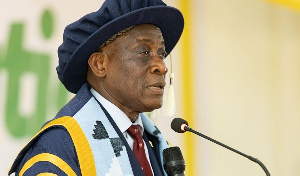Regional News of Friday, 1 June 2018
Source: ghananewsagency.org
Campaign to promote girl-child education begins in Northern Region
A month-long campaign dubbed “Leave No Girl Behind” has begun to promote girl-child education with emphasis on access and retention in school in the Northern Region.
The campaign seeks to scale up efforts in promoting girl-child education in the Region and it will explore various strategies to ensure that all stakeholders are informed or reminded of the need to collectively address the restrictions affecting girl-child education.
The strategies include media engagement and collaborations, community video shows, engagement sessions for girls and female role models, community durbars, online poster and video promotions, meetings with Parent Teacher Associations, School Management Committees, Ghana Education Service, Gender Officers and girls.
The campaign, dedicated to the month of June, is an initiative of the Empowerment for Life Programme (E4L) being implemented by Ghana Developing Communities Association and Youth Empowerment for Life, and their Danish partner, Ghana Venskab (GV).
This was contained in a statement issued by the Empowerment for Life Programme to commemorate this year’s International Children’s Day and copied to GNA in Tamale on Friday.
The statement was signed by Mr Fuseini Abdul Rahim, Technical Advisor on Gender and Advocacy at E4L.
The International Children’s Day is marked on June 01, every year to not only celebrate but also appreciate children’s role in shaping the future of different communities across the world.
The statement said “As the world marks the International Children’s Day on June 01, the need to reflect on the state of girl-child education in the country remains key and timely.”
It said “Girl-child education remains a key drive in the process of national development and therefore underscores the need for us as a country to step up strategies to enrol and sustain young girls in school more especially those in deprived and hard to reach communities.”
It said “As girls move into adolescence, gender disparities in education widen as it is seen in the number of out-of-school girls and the increase of child marriages, teenage pregnancies and girls engaged as head-potters (Kayayo) in the major cities of the country”.
It called on government and other stakeholders to step up efforts in providing education infrastructure to deprived and hard to reach communities in the country to make education accessible to all children.
The statement also called on parents to give their girls the needed support for them to remain in school and lessen their chores at home to allow them ample time for studies.
Entertainment











